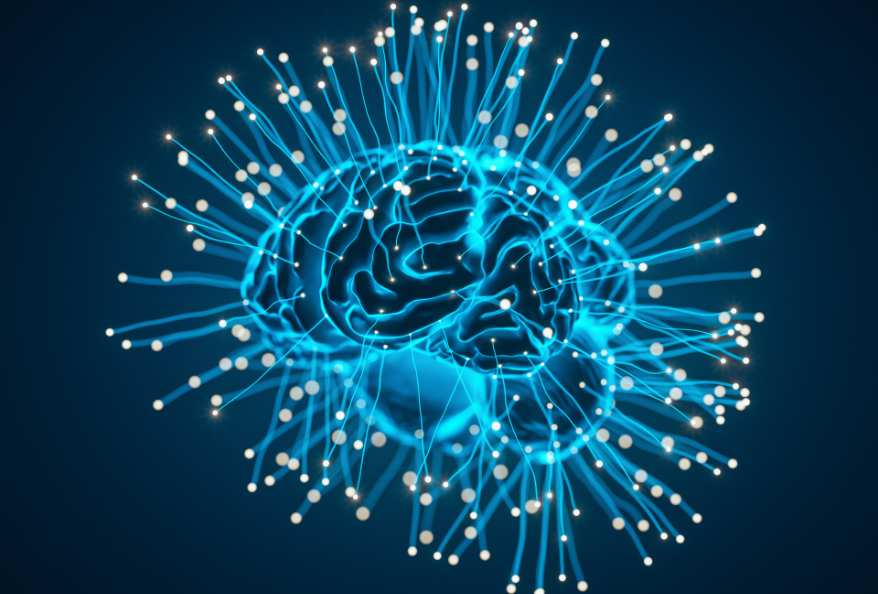Neurotechnology Specialist: Coolest Tech Job You Haven’t Heard of!
Estimated reading time: 5 minutes
Technology keeps creating new jobs that sound like science fiction. One of the most fascinating roles is the Neurotechnology Specialist. These experts specifically work on the edge of brain-computer interfaces (BCIs), neural implants, and cognitive technology. It’s a field where medicine, artificial intelligence, and innovation come together. All things considered, it may shape the future of how humans interact with machines.
What Does a Neurotechnology Specialist Do?
A neurotechnology specialist works on technologies that connect the human brain with external devices. Imagine controlling a robotic arm without moving your body. Picture sending a text message only by thinking about it. Basically, that’s the kind of work happening in neurotechnology labs today.
Their job often involves:
- Developing brain-computer interfaces (BCIs).
- Designing neural implants that help restore movement or memory.
- Working on cognitive tech for healthcare and AI.
- Lastly, testing new medical devices that interact with brain signals.
In simple terms, they would indeed help us unlock the brain’s possibilities and make ideas a reality.
Neurotechnology Specialist: Why is This Job So Cool?
This career blends neuroscience, AI, and advanced technology. Specialists are not only decoding how the brain works but also turning it into practical tools. Concurrently, one device might help paralyzed patients move again. Another might allow soldiers to respond faster on the battlefield.
It’s cool because:
- You literally control technology with your thoughts.
- You work at the intersection of medicine and engineering.
- You create solutions that can change lives, not just improve convenience.
As Elon Musk once said, the human brain is essentially an electrical computer. Neurotechnology is all about bridging the computer with the digital world.
How Does Neurotechnology Work?

To understand this job, imagine the brain as a network of billions of electrical signals. In this case, a neurotechnology specialist finds ways to record, translate, and use those signals.
For example:
- Electrodes record electrical patterns inside the brain.
- Secondly, software translates those patterns into digital commands.
- Machines respond to the commands almost instantly.
That process means a thought – like “move right” – can make a robotic hand actually move to the right.
Career Path for a Neurotechnology Specialist
Students interested in this role generally start with subjects like:
- Neuroscience
- Biomedical Engineering
- Computer Science
- Artificial Intelligence
Later, they may specialize in fields like neuroprosthetics, neuroengineering, or BCI development. Many specialists work in research labs, healthcare technology companies, or even startups focusing on brain-tech innovations.
The career path is not simple, but with the rising demand for AI-driven healthcare solutions, the opportunities are growing fast.
Neurotechnology Specialist: Skills That Make You Stand Out
To succeed as a neurotechnology professional, students should build both technical and soft skills.
Technical skills:
- Knowledge of neuroscience and brain signals.
- Coding in languages like Python or MATLAB.
- Working with AI and machine learning models.
- Understanding neuroimaging tools.
Soft skills:
- Problem-solving under pressure.
- Creativity in building new systems.
- Communication to explain complex ideas simply.
The mix of skills makes their work exciting and dynamic.
Where Will You Find Neurotechnology Specialists?
You can find them in multiple industries.
- Healthcare: Helping patients with paralysis or memory loss.
- Military & Security: Building faster, thought-driven response systems.
- Consumer Technology: Developing wearable BCIs and smart headsets.
- AI Research Labs: Exploring how machine learning and the brain intersect.
The reality is clear: wherever the brain can improve technology, you will find these specialists.
What is the Future of This Career?

Experts believe that in 20 years, many people may use neurotechnology devices daily. Some may use them for health, while others may enjoy brain-controlled gaming or AI-powered productivity.
Researchers from the NIH (National Institutes of Health) state that advances in BCIs and neural implants show great promise for restoring human capabilities and even extending them (NIH, 2023).
This means more demand for neurotechnology specialists worldwide. For students, this career could become as common as computer programming is today.
Who Should Consider a Neurotechnology Specialist Career?
If you like science, technology, or medicine, the answer is yes. A role in this field offers:
- Cutting-edge projects.
- Real social impact.
- Links to both healthcare and AI industries.
For parents, this career path is worth attention. Moreover, it combines job security in the growing health-tech market with the thrill of working on futuristic projects.
Neurotechnology does not just pay well; it also helps people live better lives. Thus, that makes it one of the coolest tech jobs of the future.
Conclusion: Neurotechnology Specialist
The job of a neurotechnology specialist sits at the crossroads of imagination and science. Therefore, these professionals make it possible to control devices using only the human mind. As the world embraces AI-driven healthcare and advanced brain-computer interfaces, this career is set to explode with opportunities.
For today’s students, exploring neurotechnology might be the first step into a truly mind-blowing future.
Reference:
- Cruz, M. V., Jamal, S., & Sethuraman, S. C. (2025). A Comprehensive Survey of Brain–Computer Interface Technology in Health care: Research Perspectives. Journal of Medical Signals & Sensors, 15(6). https://doi.org/10.4103/jmss.jmss_49_24
Additionally, to stay updated with the latest developments in STEM research, visit ENTECH Online. Basically, this is our digital magazine for science, technology, engineering, and mathematics. Furthermore, at ENTECH Online, you’ll find a wealth of information.
